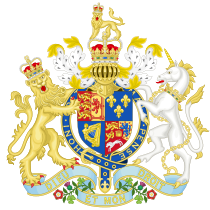By the mid-19th century the UK government was becoming increasingly concerned about the health of British soldiers and sailors, and in particular the spread of venereal disease among the military; in 1859 the infection rate of British soldiers in India was 359 per 1000 hospital admissions.[1]
Because venereal disease was regarded as a by‐product of prostitution, legislation was felt necessary to control and regulate women who engaged in prostitution. The earliest legislation, passed in 1857 in Hong Kong, then a colony of the British Empire, required brothels to be registered with the authorities and prostitutes to be regularly examined, and hospitalised if found to be infected with venereal disease.[1]
As a result of the recommendations of a committee set up in 1862, the UK parliament passed its first Contagious Diseases Act in 1864 (27 & 28 Vict. c. 85), amended in 1866 (29 & 30 Vict. c. 35) and 1869 (32 & 33 Vict. c. 96). The legislation allowed police officers to arrest women suspected of being prostitutes in certain ports and army towns. But as it did not clearly define what was meant by prostitution it was left to the discretion of the police to identify prostitutes, which meant that women could be arrested even if there was no actual evidence of prostitution.[2] Those women were then subjected to compulsory physical examinations for venereal disease, and if found to be infected were confined in a lock hospitalEstablishment that specialised in the treatment of venereal disease..[1] Women who refused to be examined were subject to a prison sentence of up to six months hard labour.[3]
The law was initially aimed at working-class women in towns near a few selected naval ports and army barracks, but by 1869 it had been amended to cover eighteen “subjected districts”. Men suspected of frequenting prostitutes were not subjected to the same compulsory checks and confinement.[4]
Opposition and repeal
The Acts were widely seen as breaching basic human rights and entrenching double standards in the treatment of men and women. Those opposing the Acts argued that “if prostitution was morally wrong, then the state was wrong to condone it by regulation”.[1]
The first organisation formed to agitate for the repeal of the contagious diseases Acts, the National Association for the Repeal of the Contagious Diseases Acts was established in 1869, but it barred women from its meetings. Consequently the separate Ladies National Association for the Repeal of the Contagious Diseases Acts (LNA) was formed in 1870, led by Josephine Butler. An 1870 article in The Daily NewsLiberal UK national daily newspaper founded by Charles Dickens, published from 1846 until 1930. laid out the objections of the LNA to the Contagious Diseases Acts:[5]
It was at the time very unusual for middle‐class women to speak publicly about sexuality, prostitution, or venereal disease, and the female leaders of the LNA’s campaign were roundly criticised for that reason by some sections of the press and members of parliament.[1] An article written by Dr. Preston gives a flavour of their objections to the involvement of women in the issue:[6]
Between 1870 and 1885 there were 17,365 petitions organised by both groups and presented to the House of Commons, bearing more than 2.6 million signatures. The British Acts were repealed in 1868, but remained in force in some colonies through the 1890s.[1]
Legacy
The Ladies National Association pioneered forms of public protest not previously used by women’s groups:[1]

